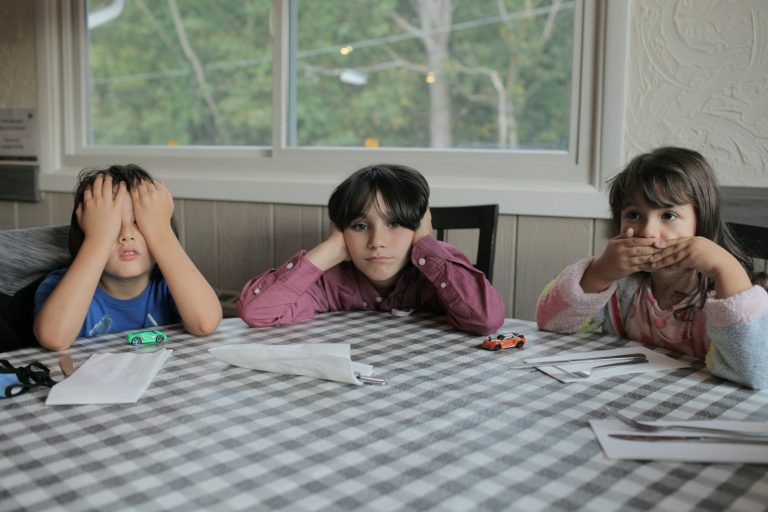Parenting is an art, especially when discussing hard topics. Alcohol and drugs are among those subjects that can’t be swept under the rug, particularly in environments as lively and dynamic as ours. The challenge is not just in starting the conversation but in ensuring it’s effective, engaging, and, most importantly, ongoing. Whether you’re taking a stroll down the bustling streets or enjoying the tranquil sunset by the beach, it’s crucial to equip our children with knowledge and understanding about these substances, their effects, and the importance of making informed choices.
Story Stages
Starting the Conversation Early
The key to a meaningful dialogue about alcohol and drugs is to start early. Children are naturally curious, and their questions can sometimes catch us off guard. It’s essential to answer them honestly but in a way that’s appropriate for their age. Early conversations should be simple and straightforward, focusing on the basics of these substances and why they harm young bodies and minds. Remember, it’s not just about laying down the rules but also explaining the reasons behind them. As we navigate through these discussions, it’s critical to underline that poor mental health can lead to addiction, highlighting the importance of talking about feelings and coping mechanisms from a young age.
Creating an Open Environment
Trust is the cornerstone of any conversation, especially those revolving around topics like alcohol and drugs. It is vital to create an environment where your kids feel safe to share their thoughts, questions, and experiences without fear of judgment or punishment. This open dialogue fosters a relationship of trust and mutual respect, making it more likely for them to come to you with their concerns or mistakes. It’s about listening as much as it’s about talking. Show genuine interest in what they have to say, encourage questions, and share your experiences in a relatable and instructive way.
Educating on the Effects and Risks
Knowledge is power, and educating your kids about the effects and risks associated with alcohol and drug use is a crucial step in helping them make informed decisions. Discussing the physical, mental, and social consequences of substance abuse helps them understand the seriousness of the issue. It’s not about instilling fear but rather about providing facts that help them grasp the long-term impacts on their health, well-being, and future. This part of the conversation should also touch on the legal aspects and societal views on substance abuse, further emphasizing the importance of responsible decision-making.
By laying a strong foundation through these initial sections, we pave the way for deeper, more meaningful conversations about alcohol and drugs. These discussions are not one-time lectures but rather a series of ongoing dialogues that evolve as our children grow. By keeping the lines of communication open, we empower them to navigate the challenges of life with confidence and wisdom.
Navigating Peer Pressure
As our kids grow and become more independent, they’ll inevitably face peer pressure. This challenge is as much a part of adolescence as any other developmental milestone. It’s crucial to equip them with strategies to handle peer pressure without feeling isolated or embarrassed. Role-playing can be an effective tool here. By acting out different scenarios, you help them develop responses that are both assertive and respectful. Encourage them to think critically about the choices they make and the company they keep. Reinforcing their sense of self and their right to say no is paramount. This section of the conversation reassures them that standing firm in their decisions is a sign of strength, not weakness.
Recognizing Warning Signs
Part of our responsibility is teaching our children to recognize the warning signs of substance abuse, both in themselves and in others. This knowledge can be lifesaving. Discuss the physical, emotional, and behavioral indicators of drug and alcohol misuse, such as changes in mood, sleeping patterns, or social circles. Stress the importance of coming forward if they or someone they know might be in trouble. It’s a delicate balance between ensuring they don’t feel responsible for others’ actions and encouraging them to seek help when necessary. This conversation is a good time to introduce the concept of support systems, including counseling services and, if necessary, an alcohol treatment center. These resources can provide professional help and guidance in times of need.
Encouraging Healthy Alternatives
A positive approach involves encouraging healthy alternatives to substance use. Highlight activities and hobbies that promote well-being, such as sports, arts, volunteering, or any passion that keeps them engaged and fulfilled. Discuss the value of setting goals and the satisfaction that comes from achieving them. Encourage socializing in environments that don’t revolve around alcohol and drugs. This conversation is an opportunity to explore what truly brings them joy and satisfaction, reinforcing that fun and relaxation don’t need to involve substances.
Setting a Good Example
Finally, it’s important to acknowledge our role as models. Our actions speak louder than words. Demonstrating responsible behavior when it comes to alcohol and drugs is crucial. This includes how we handle stress, celebrate, and socialize. Our kids are always watching and learning from us, even when it seems like they’re not. Being mindful of our habits and the messages they send can reinforce the discussions we’ve had and the values we’re trying to instill.
By approaching these talks with honesty, empathy, and patience, we can guide our children through the complexities of growing up with confidence and wisdom. Let’s keep the dialogue open, ensuring our kids know they can always turn to us, no matter what challenges they face.
